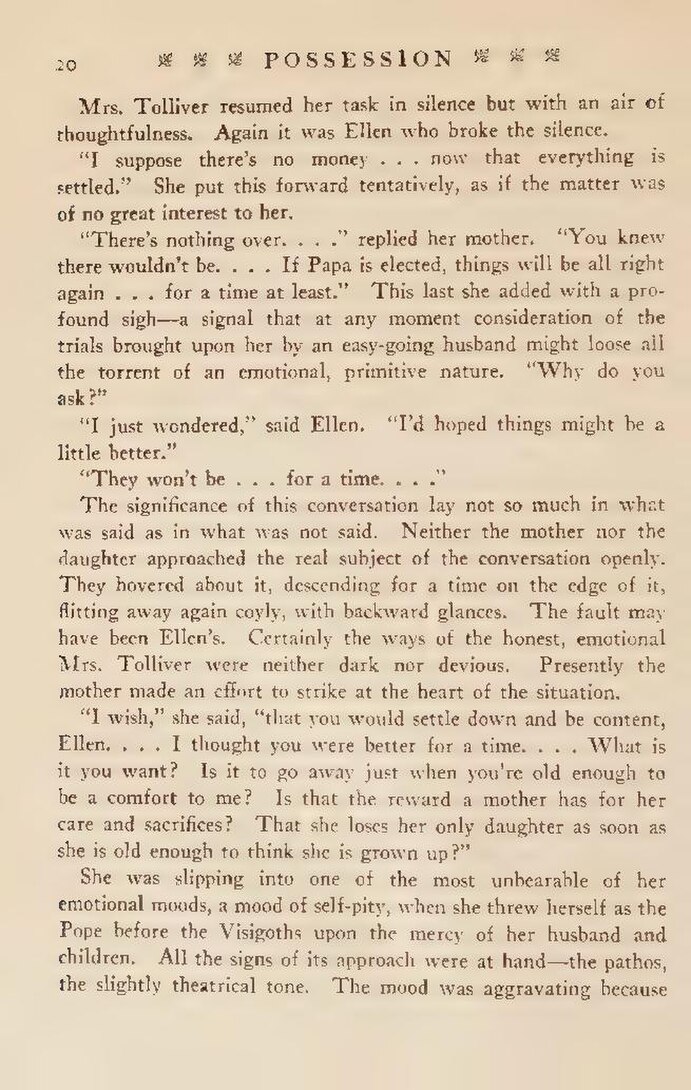Mrs. Tolliver resumed her task in silence but with an air of thoughtfulness. Again it was Ellen who broke the silence.
"I suppose there's no money . . . now that everything is settled." She put this forward tentatively, as if the matter was of no great interest to her.
"There's nothing over. . . ." replied her mother. "You knew there wouldn't be. . . . If Papa is elected, things will be all right again . . . for a time at least." This last she added with a profound sigh—a signal that at any moment consideration of the trials brought upon her by an easy-going husband might loose all the torrent of an emotional, primitive nature. "Why do you ask?"
"I just wondered," said Ellen. "I'd hoped things might be a little better."
"They won't be . . . for a time. . . ."
The significance of this conversation lay not so much in what was said as in what was not said. Neither the mother nor the daughter approached the real subject of the conversation openly. They hovered about it, descending for a time on the edge of it, flitting away again coyly, with backward glances. The fault may have been Ellen's. Certainly the ways of the honest, emotional Mrs. Tolliver were neither dark nor devious. Presently the mother made an effort to strike at the heart of the situation.
"I wish," she said, "that you would settle down and be content, Ellen. . . . I thought you were better for a time. . . . What is it you want? Is it to go away just when you're old enough to be a comfort to me? Is that the reward a mother has for her care and sacrifices? That she loses her only daughter as soon as she is old enough to think she is grown up?"
She was slipping into one of the most unbearable of her emotional moods, a mood of self-pity, when she threw herself as the Pope before the Visigoths upon the mercy of her husband and children. All the signs of its approach were at hand—the pathos, the slightly theatrical tone. The mood was aggravating because
